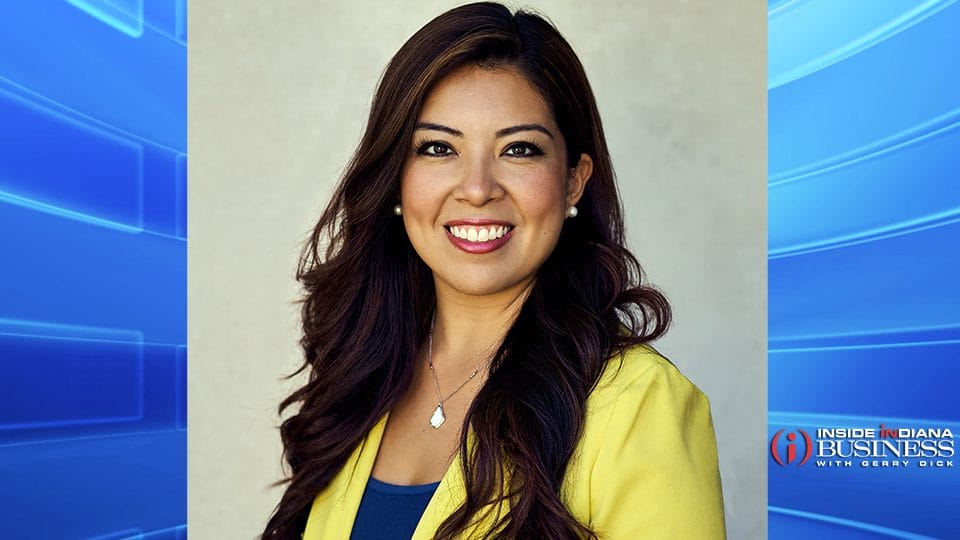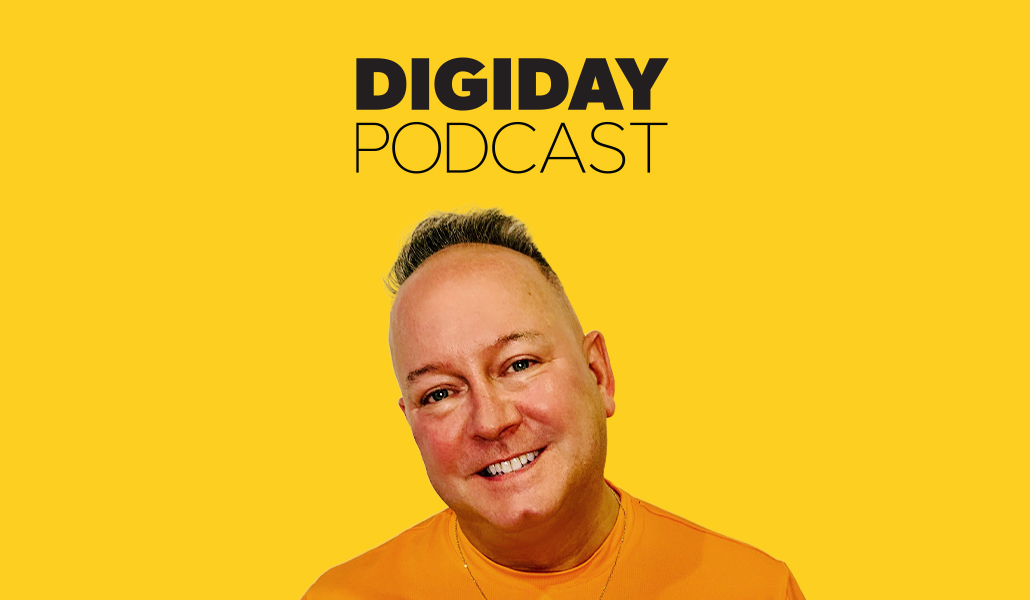Bussiness
Q&A with Yolo Vox founder Yolo Lopez DeMarco – Inside INdiana Business

Loading audio file, please wait.
Born in Guadalajara, Mexico, Yolo Lopez DeMarco became an accidental business owner during the pandemic, not out of desperation but out of a compelling need. Companies and local governments looking to translate COVID-19 information material for Hispanic residents called on the former journalist for help.
Raised in Elkhart, she quickly recognized the extent of the opportunity and launched Goshen-based Yolo Vox, a Hispanic marketing and advertising company that helps companies tap into the Hispanic market.
DeMarco spoke with Inside INdiana Business about how her business has evolved over the past five years, the business opportunity with Hispanic communities and the importance of cultural context in corporate communications.
This article has been edited for clarity and brevity.
What motivated you to open Yolo Vox?
Interestingly enough, Yolo Vox was not really in the bigger picture. I really was not planning to be a business owner. I went to college to be a journalist. I studied broadcasting communications and that was my number one passion. I thought I was going to work in TV or radio or something of that sort for the rest of my life. However, life throws you through loops and hoops. The pandemic opened an opportunity for me to explore entrepreneurship because when COVID started, a lot of people were asking me if I could help translate documents to make it easier for people to understand. Documents about wearing face masks, washing your hands more often or what to do if you have COVID-19.
It picked up really quickly and I asked my husband if he’d like to help me start a business since he had experience as a business owner. I also come from a family of entrepreneurs. My mom’s been a business owner for 25 years as a hair stylist. We’re going on our fifth year in March 2025 and it’s been amazing.
Have there been any operational changes in the last five years?
When I started the company in 2020, everything was virtual, so I didn’t need to go anywhere. I could just send my work electronically or I could have virtual meetings. But after the pandemic, it shifted to become more hands-on consulting services on Hispanic culture and how the Hispanic community might see certain types of services. For example, mental health, how that is seen in the Hispanic community, how nonprofits are seen and what that means to people.
Getting out of the pandemic opened up other opportunities. We started providing interpretation services. When events picked back up, if a company would like to have interpreters at their event, then I had my team there. We also started company events for the community and we started to do more voiceover and more on-camera work.
In terms of that deeper cultural understanding that you provide, what does that look like for a company looking to reach the Hispanic population?
So when a prospective client reaches out and says, ‘Hey, we’ve been thinking about reaching out to the Hispanic community for a really long time, but we’re not really sure how to do it,’ that’s where I can come in with my team or myself, explaining what some of those top cultural challenges are. So we provide a variety of seminars, it could be in person or virtually, for company leaders or maybe just for the marketing team. We can either customize the training or a consultation session. We have some on our website that people can choose from, it just depends on what their questions are.
Regardless of what the project is, I still like to give an initial 15-20-minute description of the Hispanic culture, so people have a better understanding of the viewpoints and some of the challenges that might arise and what they could watch out for.
DeMarco speaks about the service Yolo Vox offers.
How has the Hispanic community in this region grown from your perspective and what role do Hispanic-owned businesses play in the local economy?
In 2022, over 26% of residents in Elkhart identified as Hispanic; it’s probably doubled by now. A report from the U.S. Department of the Treasury shows there are more than 5 million Latino/Hispanic-owned businesses nationwide generating over $800 billion in annual revenue.
The Hispanic population is growing at a very rapid pace. It’s actually the second-fastest growing according to Pew Research Center and it’s been said that within the next three years, the Hispanic population is probably not going to be a minority anymore. That’s why my company has made an effort to assist companies, nonprofit organizations and financial institutions in preparing, so there can be better cultural understanding and better communication.
What are some unique challenges or opportunities that you see when helping colleges understand Hispanic students and their families?
Working with educational institutions is very interesting to me and it has a special place in my heart because it is very hard for older parents who grew up in Latin America to understand the value of education. Older Hispanic individuals tend to have more of a mentality that working is going to be the best option versus going to school. So one of the passions I have as a first-generation college student is to host talks, presentations or partner with our local colleges in the area to share my perspective. Sometimes I’ll bring my parents in as well to share how they too didn’t really know how to go about the college process, but in the end, it was worth it.
Having businesses in Mexico or in Puerto Rico versus when they come here, it’s a whole different lifestyle. There’s more opportunities, but because the culture here is so different and there’s so many steps and processes to go through, it can be scary. That’s why most of the time, the easier route seems to be, just go get a job, make some money and save versus spending time going to college.
How do you think that companies, educational institutions, organizations can begin to leverage Hispanic Heritage Month to build more meaningful connections with Hispanic audiences throughout the year and throughout the region?
As someone who loves my Latino community, not just people from Mexico but folks from wherever in Latin America, I think it’s a phenomenal thing that companies are creating Hispanic Heritage festivals or Latino night in celebration of this month. I think it’s fantastic. It’s a huge step towards showing your Latino employees or volunteers that you care about them and that you care to learn about their culture. That you understand that we’re here, we’re present and we’re here to help. We’re not here to do anything other than help and grow our families in a healthy way.
The only thing I would just suggest to companies who want to keep celebrating Hispanic Heritage Month is that while festivals are a great way to celebrate, a lot of times we can get caught up in just the partying side of things and not so much the educational aspect. Hispanic culture is so rich in food, customs, education and culture. So there’s so much to be celebrated and it doesn’t always have to be a party. I love what companies and educational institutions are doing with all the festivities but there are many different ways to celebrate Hispanic Heritage Month, there doesn’t always need to be food and a big music band. It can be highlighting the employees, giving a small gift to the Employee of the Month, asking them to share a piece of culture from where they come from. So it’s giving people an opportunity to share where they’re from, so that they have a voice as well during Hispanic Heritage Month.
What is your advice to aspiring Hispanic entrepreneurs?
There’s so many tips I would want to give to someone like that but the first one that comes to mind is to build organic relationships. Build an organic demand for the service that you want to provide. If it doesn’t feel right, think about it, don’t rush into it. Being a business owner is a huge responsibility. It’s not what a lot of people think. There’s more demand, actually, than when you are an employee because you have to make sure that things are running. And there’s just so many responsibilities. So I would just say, focus on what is growing organically. Try to provide a solution, whether that’s a solution in the community, something that’s going to make it easier for somebody else to connect to something. Just think outside the box and be creative. There’s endless opportunities, you don’t have to recreate or reinvent something that’s already there.
What’s your biggest networking tip?
For me, it’s super easy to go to networking events. I love to meet people, which is why being a journalist was perfect for me. But for other people, it’s not. It’s easier said than done but once you jump into that cold water, just go up to somebody, introduce yourself and say, ‘Hey, I just want to introduce myself, I just started a new business. In case you ever need me, here’s my card, I’m just a call away.’
The very first time I attended a networking event, I wrote what I wanted to say on my hand because I just wasn’t quite sure what to say. So write it, read it and just go from there. Networking is like a sport; it takes practice. The more you attend different events and talk to people, the more you’ll get over the fear and be able to meet so many other people.
Story Continues Below










